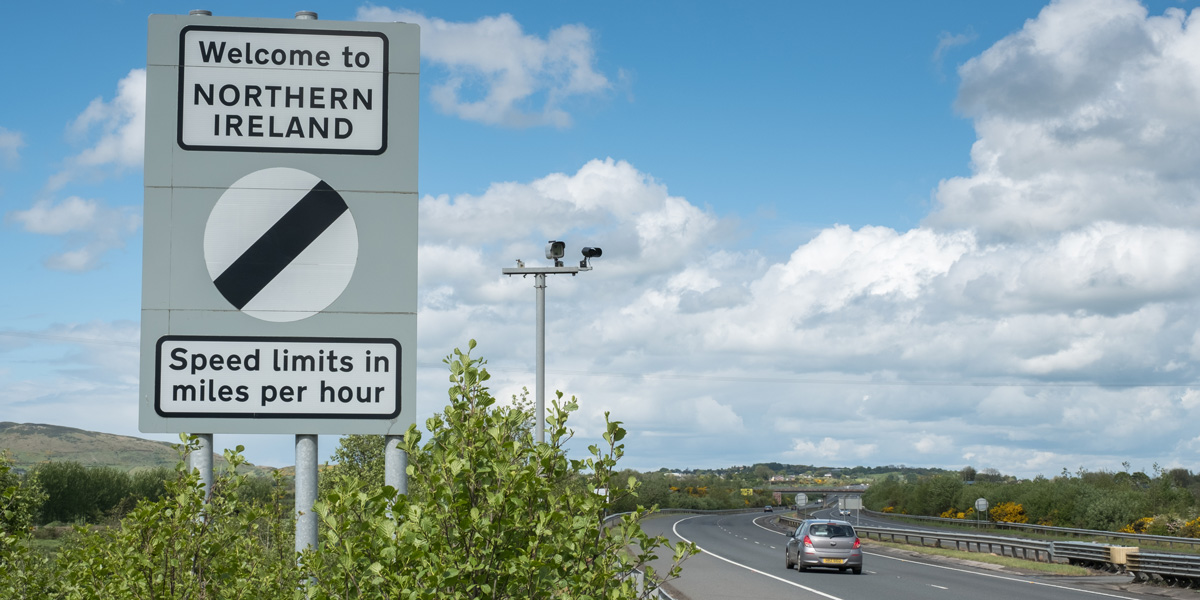There is a simple solution to the Brexit problems in Northern Ireland

Brexit’s critics should not underestimate the problems that the Northern Ireland Protocol creates for Northern Ireland (NI). It establishes a significant regulatory border (and a complex, quasi-tariff border for goods moving from Britain to NI) between the north of Ireland and its largest trading partner: the rest of the United Kingdom (UK). This creates a number of genuine practical difficulties for the polity. There is also the problem that NI is a post-conflict society with a fragile peace, while the Protocol lacks cross-community support.
Some examples of the practical problems the arrangement creates include:
- British generic drugs manufacturers withdrawing from trade with Northern Ireland due to the regulatory barriers to trade, impacting some 2,000 medicines.
- A genuine potential for shop shortages when the ‘grace period’ for the introduction of regulatory checks on food stuffs ends on October 1. There was already a taste of this in January 2021 when the change in trading arrangements led to significant food shortages, despite the existence of the grace periods agreed in December 2020.
- The introduction of new trade barriers for goods moving from Britain to NI represents a significant economic shock, which will be disruptive at best. While NI can still export without restriction to the rest of the UK, its imports are likely to be heavily affected by the very ‘hard’ form Brexit took. In 2018, NI made £13.4 billion pounds worth of purchases of goods and services from the UK, compared to £2.8 billion from the Republic of Ireland and £2.6 billion from the rest of the EU.
- In the longer-term, as Northern Ireland has remained part of the EU single market but Britain has not, there will likely be greater regulatory divergence between the rest of the UK and NI – which is full of potential for aggravating sectarian conflict.
These problems are genuine and even with lots of goodwill between both sides, they would still present major practical issues. Nonetheless, the issues raised by the protocol simply reflect the Brexit deal that the UK government has negotiated, which dramatically breaks up historic ties to the EU market (and, as a result, also severs them with Northern Ireland).
The solution is easy, but no one will say it: a single market-style deal with the EU
This is why there is a rarely talked about simple solution: a closer economic and political relationship for the whole of the UK with the EU. Such a deal would benefit everyone.
In fact, if we look at ‘whole UK’ solutions to the problem areas identified above, we can see how they would also benefit consumers, workers and producers in Britain as well as NI:
- The new bureaucracy that led British generic drugs manufacturers to withdraw from NI trade reflects how it is now harder for life science companies to export to the European market. They need to have an import license from the EU and complete a number of other bureaucratic checks. This contrasts to countries in the European Economic Area (e.g. Norway) that negotiated access to the single market and work as part of the European Medicines Agency (EMA).
- Similarly, agricultural and food producers in Britain not only face bureaucratic difficulties exporting to NI but also to the huge EU market they have relied on selling to for decades. This has led to a major collapse in exports in 2021 (see data here). So the whole of the UK, not just NI, needs an SPS deal, which is like the one Switzerland negotiated. This would mean the UK agrees to harmonize its minimum standards with EU rules in relation to food production and animal welfare. The fact a number of other countries have negotiated an SPS agreement with the EU in some form (most short of full harmonisation) underlines how hard the UK’s govt’s Brexit is.
- For British exporters, the NI market is ultimately small. But, crucially, NI is now part of the much bigger EU trade. Although the UK has agreed a tariff-free deal with the EU, it comes with considerable increased bureaucracy that the British Chamber of Commerce predicts will lead to a long-term decline in exports to the EU. They warned the government that it ‘cannot afford to ignore the economic impact of decreased exports to Europe’. This has clear risks for workers’ jobs. In contrast, improving access to the EU with a single-market deal would help protect jobs, especially in the manufacturing industries that are already in long-term decline.
So, there is a solution to these problems that could benefit everyone: a single market deal with the EU can defend jobs and economic wellbeing, as well as protect the peace in NI.
August 11, 2021
Brexit Spotlight is run by Another Europe Is Possible. You can support this work by joining us today. The website is a resource to encourage debate and discussion. Published opinions do not necessarily represent those of Another Europe.





